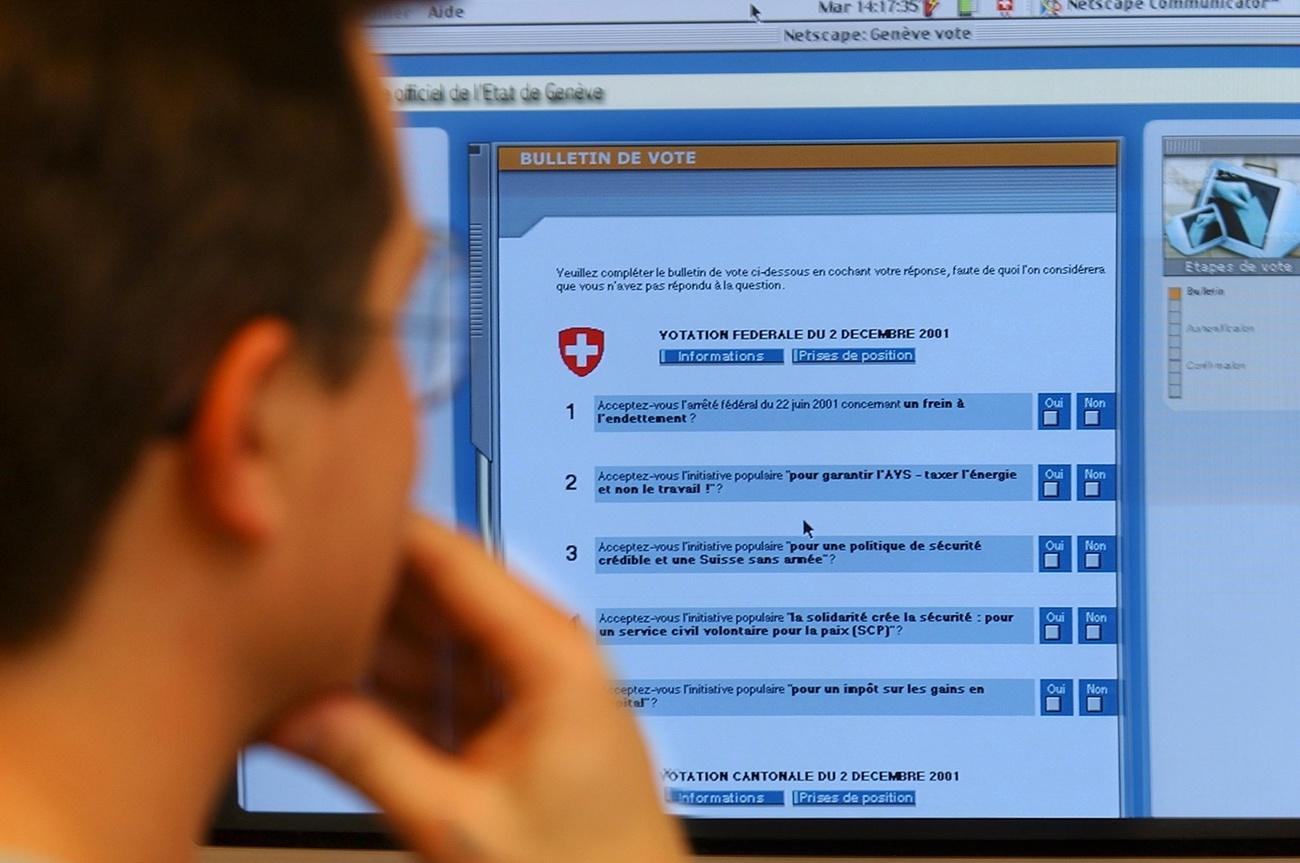
Swiss Post rolls out more secure version of e-voting platform

The publicly-owned company Swiss Post, which had abandoned its electronic voting system in July over security concerns, has developed a new version.
“We have already proposed a solution” to cantons, said general manager Roberto Cirillo in an interview published by the La Liberté newspaper on Friday.
According to Cirillo, the company is in the process of defining the rules for testing the new system with cantons. He stressed that the new version will “contain universal verifiability”.
At the beginning of July, Swiss Post abandoned its electronic voting system, which means it now cannot be used for the October federal parliamentary elections. The decision was made after subjecting the e-voting system to an intrusion test by thousands of hackers last spring.
According to Swiss Post, they were unable to penetrate the electronic ballot box, but found serious errors in the source code, which had to be corrected. The cantons of Neuchâtel, Fribourg, Thurgau and Basel City had adopted this e-voting system, which only offered individual verifiability. Three of them already plan to demand compensation from Swiss Post for failure to deliver.
In June, canton Geneva also stopped operating its electronic voting system, which was also used by the cantons of Bern, Aargau and Lucerne. This left the Swiss Post platform as the last one standing until it was withdrawn as well.
As a result of Swiss Post’s problems, the Swiss government decided to suspend efforts to enshrine electronic voting in Swiss law. But it stressed that it had not given up completely on e-voting.
The central security mechanisms of Swiss Post’s e-voting systems are universal and individual verifiability. In the case of universal verifiability, the electoral authorities can check whether votes have been manipulated in the electronic ballot when counting votes. The check is comparable to the recounting of physical ballots. Universal verifiability enables independent control and verification of the ballot by the cantons.
In the case of individual verifiability, the voters receive verification codes on paper together with the voting documents. They compare the codes when they cast their vote with the codes shown on the screen, and can thus be sure that their vote has arrived correctly in the ballot box.
The new e-voting system has both mechanisms. The previous e-voting system only offered individual verifiability.
Source: Swiss Post

More
These are the arguments that sank e-voting in Switzerland

In compliance with the JTI standards
More: SWI swissinfo.ch certified by the Journalism Trust Initiative



























You can find an overview of ongoing debates with our journalists here . Please join us!
If you want to start a conversation about a topic raised in this article or want to report factual errors, email us at english@swissinfo.ch.